Homemade Cleaning Products: Unlock the secrets to a sparkling clean home without breaking the bank or exposing your family to harsh chemicals! Have you ever wondered if there’s a better, more natural way to keep your living space fresh and inviting? I know I have! For generations, our ancestors relied on simple, readily available ingredients to maintain their homes, a practice rooted in resourcefulness and a deep connection to nature. From ancient civilizations using vinegar and herbs to modern-day eco-conscious families, the tradition of crafting homemade cleaning products has endured.
But why should you embrace this time-honored practice? In today’s world, we’re bombarded with commercial cleaning solutions filled with synthetic fragrances, dyes, and potentially harmful substances. These products can trigger allergies, irritate sensitive skin, and even contribute to indoor air pollution. Plus, let’s be honest, they can be quite expensive! That’s where the magic of DIY cleaning comes in. By creating your own cleaning solutions, you gain complete control over the ingredients, ensuring a safe and healthy environment for yourself, your loved ones, and even your furry friends.
This article is your ultimate guide to crafting effective and affordable cleaning solutions using simple ingredients you probably already have in your pantry. Get ready to ditch the harsh chemicals and embrace the power of nature with these easy-to-follow recipes and tips. Let’s get started on your journey to a cleaner, greener, and healthier home!
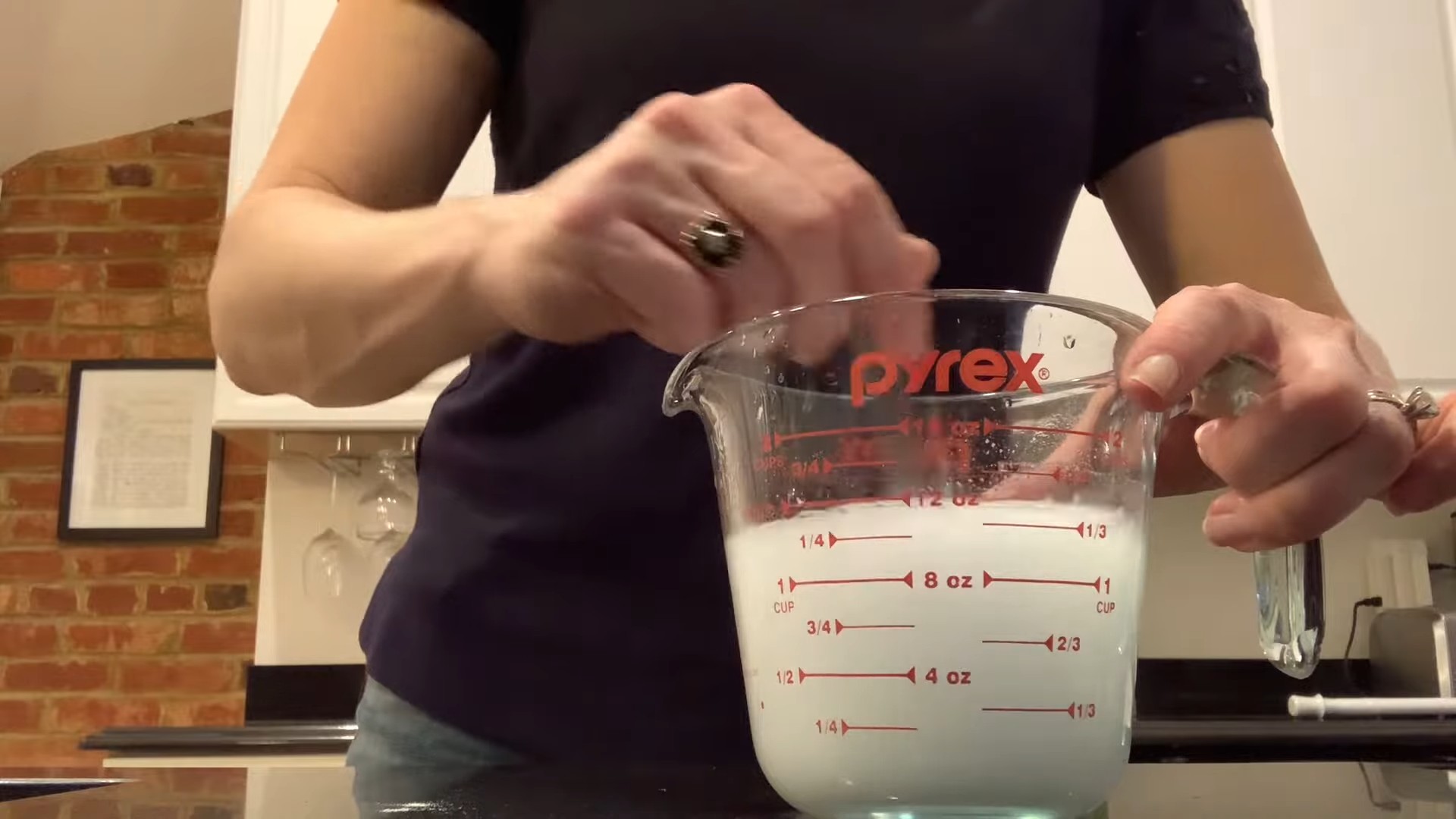
DIY Cleaning Products: Natural, Effective, and Budget-Friendly!
Hey everyone! I’m so excited to share some of my favorite homemade cleaning product recipes with you. Not only are these recipes super easy to make, but they’re also much better for the environment and your wallet than store-bought cleaners. Plus, you’ll know exactly what’s going into your cleaning solutions, avoiding harsh chemicals and artificial fragrances. Let’s get started!
All-Purpose Cleaner
This is my go-to cleaner for almost everything! It’s effective on countertops, sinks, appliances, and even floors.
Ingredients:
* 1/2 cup white vinegar
* 1/4 cup baking soda
* 1 liter hot water
* 10-15 drops essential oil (lemon, lavender, tea tree, or eucalyptus are great choices)
* Spray bottle
Instructions:
1. Combine Ingredients: In a large bowl, mix the baking soda and vinegar. Be prepared for it to fizz!
2. Add Water: Slowly pour in the hot water, stirring gently to dissolve the baking soda.
3. Add Essential Oils: Once the mixture has cooled slightly, add your essential oils. These not only provide a pleasant scent but also have antibacterial and antiseptic properties.
4. Pour into Spray Bottle: Carefully pour the mixture into a spray bottle. A funnel can be helpful here.
5. Use and Store: Shake well before each use. Spray onto surfaces and wipe clean with a damp cloth. Store at room temperature.
Important Note: Avoid using this cleaner on marble or granite surfaces, as the vinegar can etch the stone.
Glass Cleaner
Say goodbye to streaks with this simple and effective glass cleaner!
Ingredients:
* 2 cups water
* 1/4 cup white vinegar
* 1/2 teaspoon liquid dish soap (optional, but helps cut through grease)
* Spray bottle
* Microfiber cloth
Instructions:
1. Combine Ingredients: In a spray bottle, combine the water, vinegar, and dish soap (if using).
2. Shake Well: Shake the bottle gently to mix the ingredients.
3. Spray and Wipe: Spray the solution onto your windows or mirrors.
4. Wipe Clean: Use a clean microfiber cloth to wipe the surface dry. For best results, use a dry cloth to buff the glass after wiping.
Tip: Newspaper can also be used to wipe windows and mirrors for a streak-free shine.
Toilet Bowl Cleaner
This homemade toilet bowl cleaner is a powerful and natural way to keep your toilet sparkling clean.
Ingredients:
* 1/2 cup baking soda
* 1 cup white vinegar
* 5-10 drops tea tree oil (optional, for extra disinfecting power)
Instructions:
1. Sprinkle Baking Soda: Sprinkle the baking soda evenly around the inside of the toilet bowl.
2. Pour Vinegar: Slowly pour the vinegar over the baking soda. It will fizz!
3. Add Tea Tree Oil (Optional): Add the tea tree oil, if using.
4. Let it Sit: Let the mixture sit for at least 15-20 minutes, or even overnight for a deeper clean.
5. Scrub and Flush: Scrub the toilet bowl with a toilet brush and then flush.
Tip: For stubborn stains, you can use a pumice stone to gently scrub the affected area.
Oven Cleaner
Cleaning the oven is never fun, but this homemade oven cleaner makes it a little easier and a lot less toxic.
Ingredients:
* 1/2 cup baking soda
* Water
* Spray bottle
* Scrub brush or sponge
* Vinegar (optional, for stubborn stains)
Instructions:
1. Remove Oven Racks: Remove the oven racks and set them aside.
2. Make a Paste: In a bowl, mix the baking soda with enough water to form a thick paste.
3. Coat the Oven: Spread the paste evenly over the inside surfaces of the oven, avoiding the heating elements.
4. Let it Sit: Let the paste sit for at least 12 hours, or overnight.
5. Scrub and Wipe: After letting it sit, use a scrub brush or sponge to scrub away the loosened grime.
6. Rinse: Wipe the oven clean with a damp cloth. You may need to rinse several times to remove all the baking soda residue.
7. Vinegar for Stubborn Stains (Optional): If you have stubborn stains, spray them with vinegar and let it sit for a few minutes before scrubbing again.
8. Clean Oven Racks: Soak the oven racks in hot, soapy water and scrub them clean.
9. Dry and Replace: Dry the oven and oven racks thoroughly before replacing them.
Important Note: Always unplug your oven before cleaning it.
Dish Soap
This homemade dish soap is gentle on your hands and effective at cleaning dishes.
Ingredients:
* 1 cup grated castile soap (like Dr. Bronner’s)
* 4 cups hot water
* 1 tablespoon washing soda (sodium carbonate)
* 10-15 drops essential oil (lemon, grapefruit, or orange are great choices)
Instructions:
1. Dissolve Castile Soap: In a saucepan, combine the grated castile soap and hot water. Heat over low heat, stirring constantly, until the soap is completely dissolved.
2. Add Washing Soda: Remove from heat and stir in the washing soda until it is dissolved.
3. Add Essential Oils: Add your essential oils and stir to combine.
4. Let it Cool: Let the mixture cool completely. It will thicken as it cools.
5. Pour into Dispenser: Pour the dish soap into a dispenser bottle.
6. Use and Store: Use as you would regular dish soap. Store at room temperature.
Note: Washing soda can be found in the laundry aisle of most grocery stores.
Laundry Detergent
Making your own laundry detergent is surprisingly easy and can save you a lot of money.
Ingredients:
* 1 cup washing soda (sodium carbonate)
* 1 cup borax (sodium borate)
* 1 cup grated castile soap (like Dr. Bronner’s)
* Optional: 10-20 drops essential oil (lavender, lemon, or tea tree)
Instructions:
1. Grate Castile Soap: Grate the castile soap using a cheese grater or food processor.
2. Combine Ingredients: In a large bowl, combine the washing soda, borax, and grated castile soap.
3. Add Essential Oils (Optional): Add your essential oils, if using.
4. Mix Well: Mix all the ingredients thoroughly.
5. Store: Store the laundry detergent in an airtight container.
6. Use: Use 1-2 tablespoons per load of laundry, depending on the size and soil level of the load.
Important Note: Borax can be irritating to some people’s skin, so it’s best to wear gloves when handling it.
Furniture Polish
This homemade furniture polish will leave your wood furniture looking shiny and new.
Ingredients:
* 1/4 cup olive oil
* 1 tablespoon white vinegar or lemon juice
* Soft cloth
Instructions:
1. Combine Ingredients: In a small bowl, combine the olive oil and vinegar or lemon juice.
2. Apply to Furniture: Dip a soft cloth into the mixture and apply a thin layer to your wood furniture.
3. Buff: Use a clean, dry cloth to buff the furniture until it shines.
Tip: Test the polish on an inconspicuous area of your furniture first to make sure it doesn’t damage the finish.
Drain Cleaner
Avoid harsh chemicals with this natural drain cleaner.
Ingredients:
* 1/2 cup baking soda
* 1 cup white vinegar
* Hot water
Instructions:
1. Pour Baking Soda: Pour the baking soda down the drain.
2. Pour Vinegar: Pour the vinegar down the drain after the baking soda.
3. Let it Fizz: Let the mixture fizz for 30 minutes.
4. Flush with Hot Water: Flush the drain with hot water.
Tip: For stubborn clogs, repeat the process or use a plunger.
Floor Cleaner
Keep your floors sparkling clean with this simple solution.
Ingredients:
* 1/4 cup white vinegar
* 1 gallon warm water
* Optional: a few drops of essential oil for fragrance
Instructions:
1. Combine Ingredients: In a bucket, combine
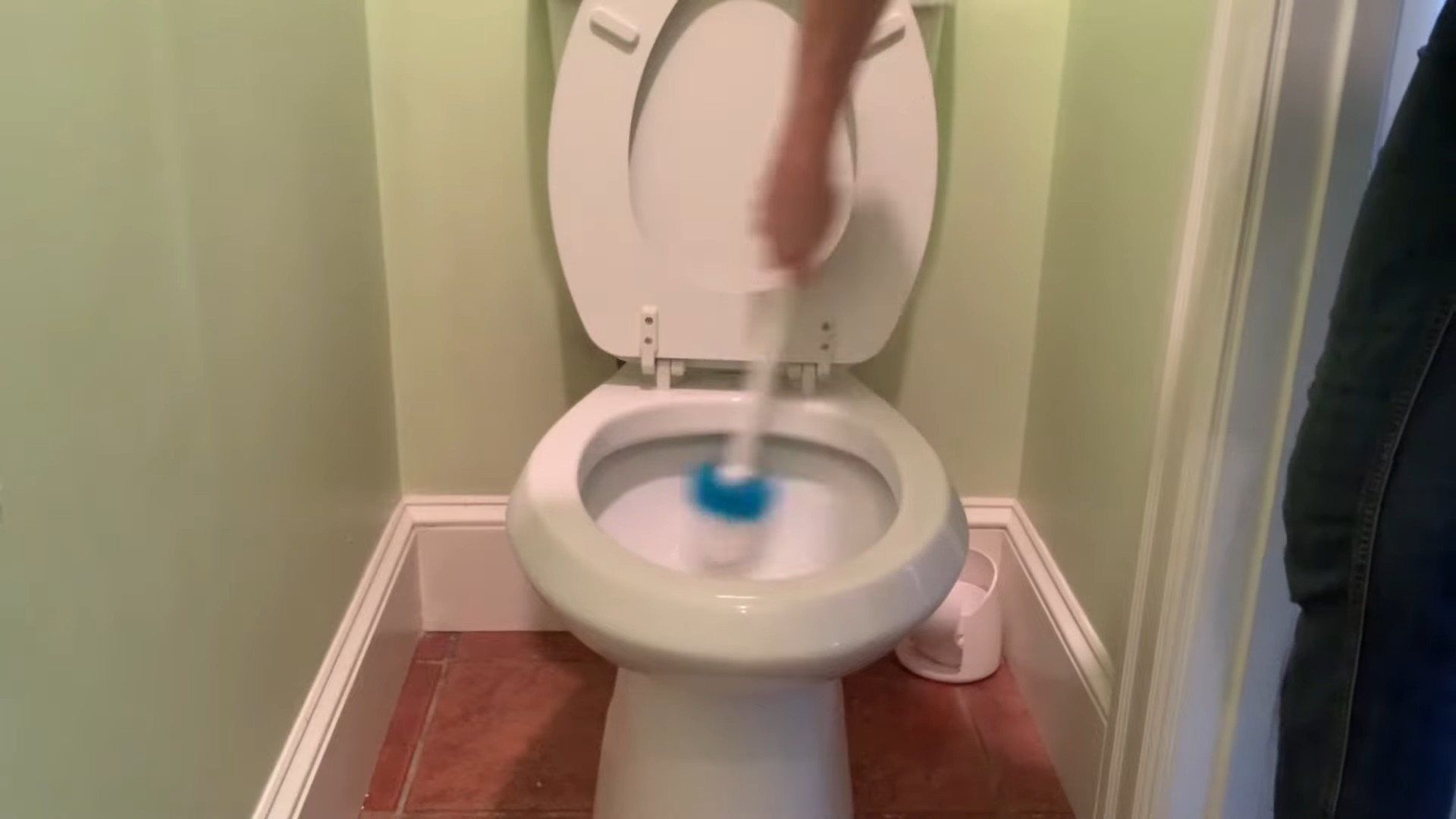
Conclusion
So, there you have it! Ditching the harsh chemicals and embracing these simple, effective, and budget-friendly homemade cleaning products is more than just a trend; it’s a conscious choice for a healthier home and a happier planet. We’ve explored how easy it is to create powerful cleaners using ingredients you likely already have in your pantry. From tackling stubborn grease to disinfecting surfaces, these DIY solutions offer a safe and sustainable alternative to conventional store-bought options.
The beauty of these recipes lies in their adaptability. Feel free to experiment with different essential oils to create your signature scent. Lavender, lemon, tea tree, and eucalyptus are all fantastic choices, each offering unique antibacterial and aromatic properties. For instance, if you’re making an all-purpose cleaner, consider adding a few drops of tea tree oil for its potent antimicrobial benefits. Or, if you’re creating a bathroom cleaner, lemon oil can help cut through soap scum and leave a refreshing citrus scent.
Beyond the environmental and health benefits, making your own cleaning products is incredibly empowering. You have complete control over the ingredients, ensuring that you’re not exposing yourself or your family to harmful chemicals. Plus, it’s a fantastic way to reduce plastic waste and save money in the long run. Think about all those empty plastic bottles you’ll be keeping out of landfills!
Why is this a must-try? Because it’s a win-win-win! You get a cleaner home, a healthier environment, and a lighter wallet. What’s not to love?
We’ve covered a range of cleaning solutions, but don’t stop there! The world of DIY cleaning is vast and exciting. Explore different combinations of ingredients, experiment with different ratios, and discover what works best for your specific needs and preferences. Perhaps you’ll find that adding a bit of borax to your laundry detergent boosts its cleaning power, or that a paste of baking soda and water is the perfect solution for removing stubborn stains from your countertops.
Ready to take the plunge? We encourage you to start with one or two of these recipes and see the difference for yourself. Once you experience the satisfaction of creating your own effective and eco-friendly cleaners, you’ll never look back.
Don’t be afraid to get creative and personalize your cleaning routine. Remember, the best cleaning products are the ones that work for you and your family.
We’re confident that you’ll be amazed by the effectiveness and simplicity of these homemade cleaning products. So, grab your ingredients, put on your DIY hat, and get ready to transform your cleaning routine.
We’d love to hear about your experiences! Share your tips, tricks, and variations in the comments below. Let’s build a community of eco-conscious cleaners and inspire others to make the switch to a healthier and more sustainable lifestyle. What are your favorite essential oil combinations? Have you discovered any secret ingredients that boost the cleaning power of these recipes? We want to know!
Remember, every small step towards a more sustainable lifestyle makes a difference. By choosing to make your own cleaning products, you’re not only creating a healthier home for yourself and your family, but you’re also contributing to a cleaner and more sustainable future for all. So, let’s get cleaning!
Frequently Asked Questions (FAQs)
Q: Are homemade cleaning products as effective as store-bought cleaners?
A: In many cases, yes! The effectiveness of homemade cleaning products depends on the ingredients used and the specific cleaning task. Ingredients like vinegar, baking soda, and lemon juice have natural cleaning properties that can effectively remove dirt, grime, and bacteria. While some heavy-duty cleaning tasks might require a stronger solution, many everyday cleaning needs can be easily met with homemade alternatives. The key is to use the right ingredients for the right job and to experiment with different recipes to find what works best for you. For example, vinegar is a great disinfectant and degreaser, while baking soda is excellent for scrubbing and deodorizing.
Q: What are the benefits of using homemade cleaning products?
A: There are numerous benefits to using homemade cleaning products. Firstly, they are often much cheaper than store-bought cleaners. You can save a significant amount of money by using common household ingredients instead of purchasing expensive commercial products. Secondly, homemade cleaners are generally safer for your health and the environment. They don’t contain harsh chemicals, artificial fragrances, or other potentially harmful ingredients that can cause skin irritation, respiratory problems, or other health issues. Thirdly, making your own cleaning products reduces plastic waste and promotes sustainability. You can reuse spray bottles and containers, minimizing your environmental impact. Finally, you have complete control over the ingredients, allowing you to customize your cleaning solutions to meet your specific needs and preferences.
Q: What essential oils are best to use in homemade cleaning products?
A: The best essential oils for homemade cleaning products are those with antibacterial, antiviral, and antifungal properties. Some popular choices include:
* **Tea Tree Oil:** Known for its potent antimicrobial and antiseptic properties, tea tree oil is excellent for disinfecting surfaces and fighting mold and mildew.
* **Lemon Oil:** A natural degreaser and disinfectant, lemon oil has a refreshing citrus scent and can help cut through grease and grime.
* **Lavender Oil:** Lavender oil has antibacterial and antifungal properties and a calming scent, making it a great addition to all-purpose cleaners and laundry detergents.
* **Eucalyptus Oil:** Eucalyptus oil has antiseptic and antiviral properties and a strong, invigorating scent, making it ideal for cleaning bathrooms and kitchens.
* **Peppermint Oil:** Peppermint oil has antibacterial and antifungal properties and a refreshing scent, making it a great addition to floor cleaners and all-purpose cleaners.
When using essential oils, be sure to dilute them properly and test them on a small, inconspicuous area first to ensure they don’t damage the surface.
Q: Are there any surfaces that I shouldn’t use homemade cleaning products on?
A: Yes, there are certain surfaces that you should avoid using homemade cleaning products on, particularly those containing vinegar or lemon juice. Acidic cleaners can damage natural stone surfaces like marble, granite, and limestone. They can also etch glass and corrode metal. It’s best to use pH-neutral cleaners specifically designed for these surfaces. Additionally, avoid using abrasive cleaners like baking soda on delicate surfaces like polished wood or stainless steel, as they can scratch the finish. Always test your homemade cleaning products on a small, inconspicuous area first to ensure they don’t cause any damage.
Q: How should I store homemade cleaning products?
A: Store homemade cleaning products in clean, airtight containers. Label each container clearly with the name of the product and the date it was made. Keep them out of reach of children and pets. Store them in a cool, dark place away from direct sunlight and heat. Some homemade cleaners, like those containing essential oils, may degrade over time, so it’s best to use them within a few months of making them. Avoid storing homemade cleaners in metal containers, as some ingredients can react with metal. Plastic or glass containers are generally the best options.
Q: Can I use homemade cleaning products in my laundry?
A: Yes, you can use homemade cleaning products in your laundry. Vinegar can be used as a natural fabric softener and odor eliminator. Baking soda can be added to the wash to boost the cleaning power of your detergent and brighten whites. You can also make your own laundry detergent using ingredients like washing soda, borax, and soap flakes. However, it’s important to note that homemade laundry detergents may not be as effective at removing stubborn stains as commercial detergents. You may need to pre-treat stains before washing.
Q: How can I make my homemade cleaning products smell better?
A: You can enhance the scent of your homemade cleaning products by adding essential oils. Choose essential oils with pleasant and complementary scents. For example, you can combine lemon and lavender for a refreshing and calming scent, or tea tree and eucalyptus for a clean and invigorating scent. You can also add dried herbs or citrus peels to your cleaning solutions for a natural fragrance. However, be sure to strain out any solid particles before using the cleaner.
Q: What if my homemade cleaning product doesn’t work as well as I expected?
A: If your homemade cleaning product doesn’t work as well as you expected, try adjusting the recipe. You may need to increase the concentration of certain ingredients or add other ingredients to boost its cleaning power. For example, if your all-purpose cleaner isn’t cutting through grease effectively, try adding more vinegar or dish soap. If your laundry detergent isn’t removing stains, try pre-treating the stains with a stain remover or soaking the clothes in a solution of baking soda and water before washing. Experiment with different recipes and techniques until you find what works best for you.
Q: Are there any safety precautions I should take when making homemade cleaning products?
A: Yes, there are several safety precautions you should take when making homemade cleaning products. Always wear gloves and eye protection to protect your skin and eyes from irritation. Work in a well-ventilated area to avoid inhaling fumes. Be careful when mixing ingredients, especially when combining acidic and alkaline substances, as they can react violently. Never mix bleach with vinegar or ammonia, as this can create toxic fumes. Keep homemade cleaning products out of reach of children and pets. Label all containers clearly to avoid accidental ingestion. If you experience any irritation or allergic reaction, discontinue use and consult a doctor.

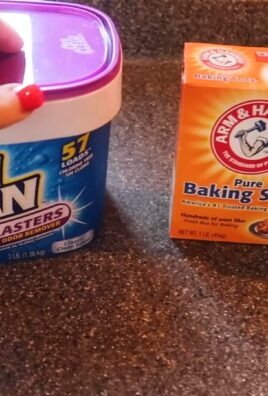
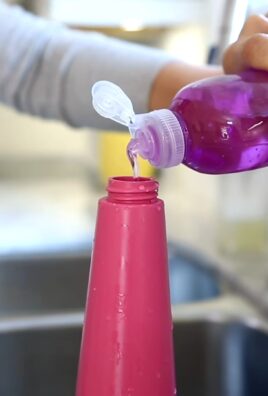
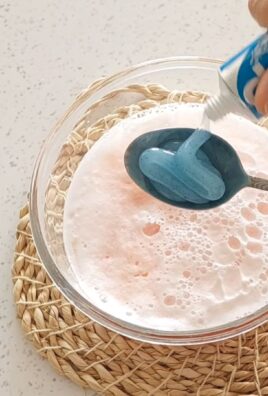
Leave a Comment